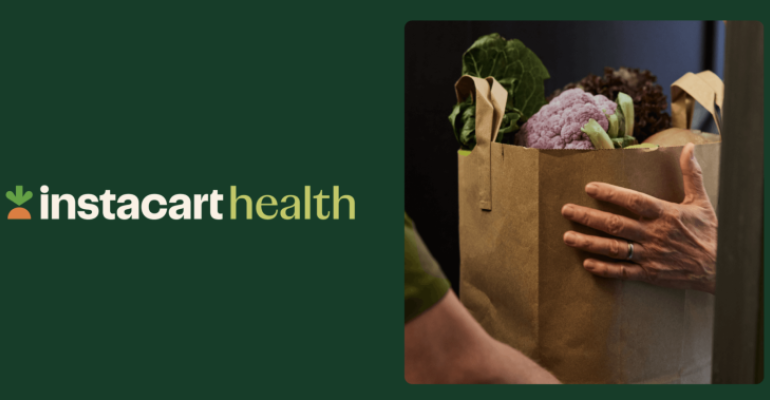Last-mile delivery service Instacart is partnering with the U.S. Department of Health and Human Services (HHS) to expand food as medicine initiatives, the San Francisco-based company announced Wednesday.
The partnership aims to focus on four pillars:
- Leveraging research to establish evidence on clinical health outcomes, cost effectiveness, and program design
- Identifying strategies for implementing food as medicine through public policy
- Educating the public on the concept of food as medicine
- Supporting diverse communities and focusing on health equity
“Instacart shares HHS’s unwavering commitment to improving health through the power of food, and we’re proud to launch this public-private partnership with the agency to expand access to nutritious food and improve health outcomes,” said Dani Dudeck, chief corporate affairs officer at Instacart, in a statement. “Together, we can ensure the food as medicine movement reaches every family and community across the country.”
The partnership, announced at the inaugural HHS Food as Medicine Summit in Washington, D.C., builds on the company’s Instacart Health Initiative, which was launched in 2022 during the White House Conference on Hunger, Nutrition and Health. The initiative established Instacart Fresh Funds, which are stipends given to patients that can be used for produce.
The company has also partnered with a wide variety of universities and hospitals to further develop food as medicine programs, prescription medication initiatives, and other nutrition interventions.
Over the last two years, Instacart has moved further into the health care space through a variety of programs and partnerships. Last fall, Instacart CEO Fidji Simo touted the broad range of health care initiatives the company has advanced, particularly in scaling food as medicine programs.
“Using food as a tool to improve people’s health is a win-win — for patients and for the healthcare system overall. The financial opportunity is massive: If people’s diets improved, there could be more than $100 billion in savings for patients, taxpayers, providers, and insurers, including employer-funded health plans and government-funded plans like Medicare and Medicaid,” Simo wrote in an Oct. 19 blog post. “Our job at Instacart, when it comes to supporting the healthcare community, is to build the technology platform to provide scalable programs for providers, payers, hospital systems, and more to put nutritious food in the hands of people in a convenient, accessible, and affordable way.”


